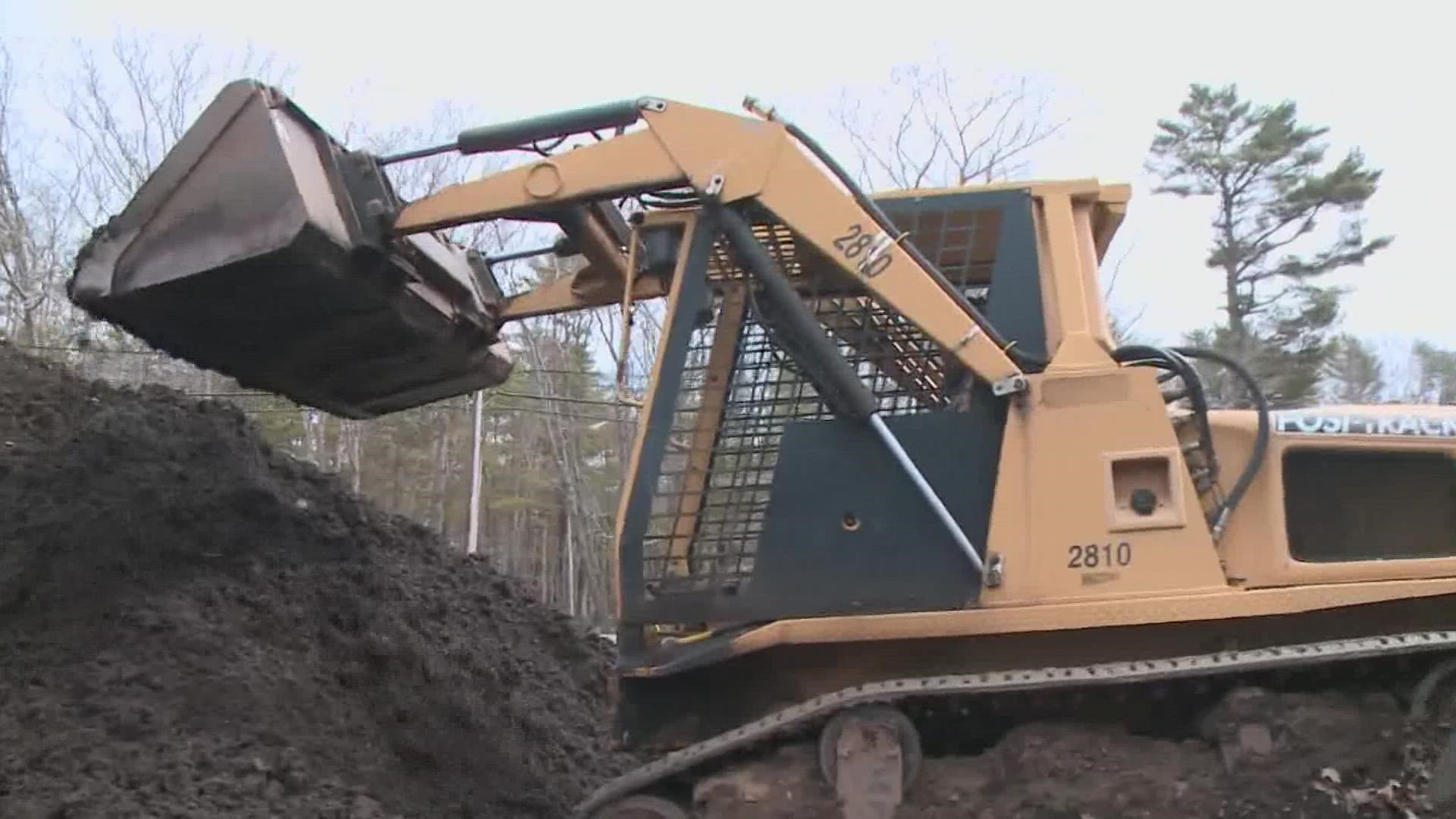DAMARISCOTTA, Maine — A statewide ban on the spreading of municipal sludge is scheduled to go into effect in less than three months.
Industrial chemicals known as PFAS in the sludge leeched into groundwater after being used as fertilizer on hundreds of farms.
The law also prohibits the use of sludge in compost and fertilizer, which has left some garden businesses concerned about their livelihoods because safer sources of compost will be minimal.
The spring growing season is usually a boon for Alan Pinkham, who spent more than four decades operating Pinkham's Plantation, a garden and landscaping business.
Customers come from across the midcoast and other areas to buy his "super soil" wholesale blend for home gardens and farms.
"For 15 to 20 years, I have been mixing up soil, and it's become quite popular," Pinkham said.
But in less than 90 days, under a recently approved law, Pinkham will not be allowed to make or sell this soil formula.
"I am about to be an illegal person if I continue. I am a criminal," Pinkham declared.
The ban prohibits the sale of compost made with municipal sludge, also known as biosolids. State regulators said the sludge is a source of widespread contamination from industrial compounds known as PFAS. The chemicals have been linked to several health problems in federal studies, including organ-related cancers.
Pinkham makes his super soil with compost from the Earthlife Brand, manufactured by Casella Waste Systems, which operates the Hawk Ridge Compost Facility.
The facility makes nearly 80 percent of the compost in Maine from in- and out-of-state sludge. Pinkham said that compost is treated and tested for many chemicals but not PFAS. He is concerned about using compost from local transfer stations that use yard waste and lawn clippings.
"Did they use weed and seed on their lawn? Did they spray with insecticides? Do they have pets? Is there pet feces in there? Without the time and temperatures at a hawk facility, that's pasteurized," Pinkham said.
The law restricting the use of sludge was the focus of a recent meeting between wastewater utility districts and members of the biosolids industry. Officials support funding potential technology that would destroy the chemicals in sludge.
"The real crux of our issue is to address the overall concentration in biosolids, and that may be a few years out," Jeffrey McBurnie, the environmental manager at Casella, said.
The New England Interstate Water Pollution Control Commission is also working on the possibility of starting a PFAS technology center in Maine to test innovative ways to eradicate PFAS.
"Vet them, test them, and provide that information to local utilities, so they can start making some decisions on capital planning," Janine Burke-Wells, executive director of the Northeast Biosolids & Residual Association, said.
But waiting for that technology to be approved will take too long for Pinkham. While he expects to sell all of this soil soon, now closer to retirement, he's worried about what will happen if a safe supply of compost is not available for years to come.

